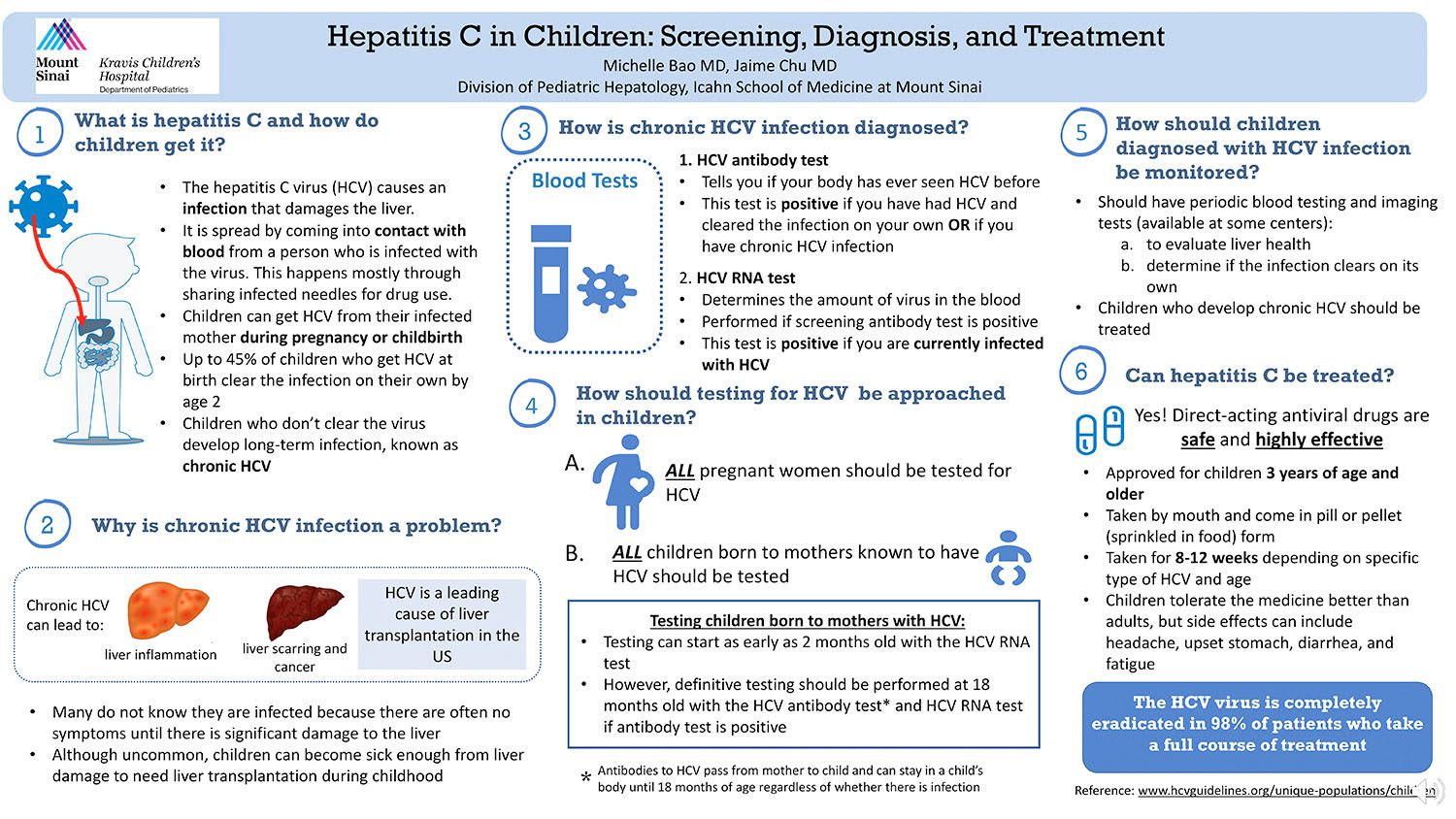Hepatitis C in Children: Screening, Diagnosis, and Treatment
Michelle Bao and Jaime Chu
Icahn School of Medicine at Mount Sinai
This presentation is an excerpt from the ALF 2021 Poster Competition. This competition showcases posters and a brief video created by early career investigators from across the country on six areas of educational focus: fatty liver disease, liver cancer, liver transplantation, pediatric liver disease, rare liver disease and viral hepatitis. Participants are tasked with translating complicated medical information into a poster which can be easily understood by patients or the public. Posters are reviewed by a formal panel of judges comprised of Medical Advisory Council members, Board Members and friends of ALF to select a winner in each category.
The hepatitis C virus or HCV, causes an infection which damages the liver. it is spread by coming into contact with blood from a person who is infected with the virus. In adults, this most commonly happens through sharing infected needles for drug use. Mothers who have HCV can spread the infection to their child during pregnancy or childbirth. For up to 45% of children who get HCV, their bodies are able to clear the infection on their own by age 2 without needing treatment. However, children who don’t clear the infection go on to develop long term infection, known as chronic HCV. Over time, if left untreated, chronic HCV can lead to liver inflammation, liver scarring, and even cancer. It is a leading cause of liver transplantation in the US. Chronic HCV is diagnosed using blood tests with an antibody test and then an RNA test if the antibody test is positive. Any child born to a mother known to have HCV should be tested after birth. Testing can start as early as 2 months of age with the HCV RNA test. However definitive testing should be performed at 18 months old with the HCV antibody test and HCV RNA test if the antibody test is positive. Once a child is found to have HCV infection, he or she should be monitored with periodic blood and imaging testing. These tests are performed to evaluate liver health and determine if the infection clears on its own or becomes chronic. Children who develop chronic HCV should be treated. There are direct-acting anti-viral drugs available that are safe and highly effective at treating HCV. They are approved in children as young as 3 years old. The HCV virus is able to be completely eradicated in 98% of patients who take a full course of treatment.
Last Updated on December 1, 2021
Share this page






